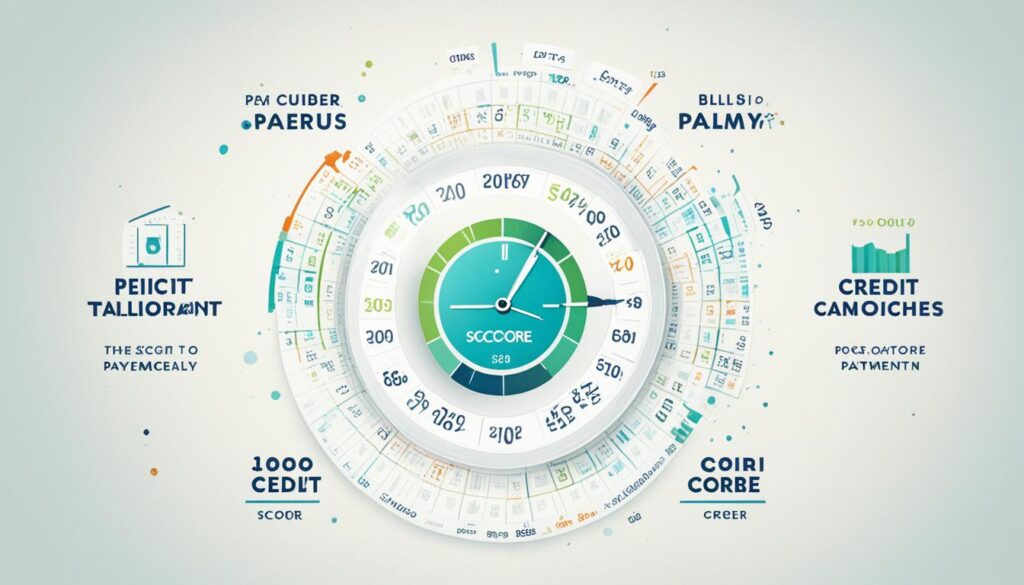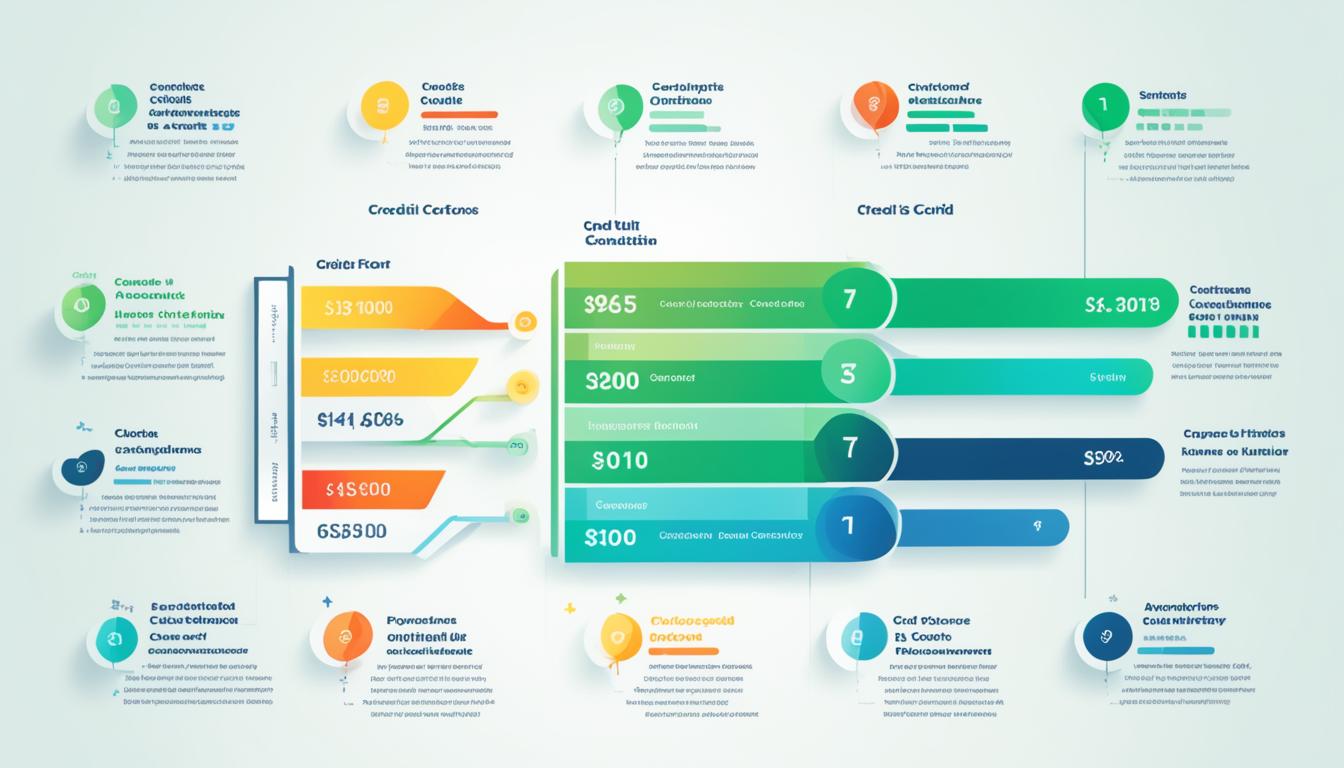Your credit score reflects your ability to manage debt responsibly. A higher score grants access to favorable interest rates. Building and maintaining a strong credit profile supports long-term financial goals.
Focus on budgeting, debt management, and responsible credit usage. This can help you achieve an excellent credit score (over 780).
Credit scores range from 300-850. Scores above 780 are excellent, 660-779 are good. Payment history heavily impacts scores, up to 40%.
Missing a payment deadline can significantly drop your score. Review credit reports regularly to identify areas for improvement.
Keep credit utilization below 30% of your limit. Apply for new credit selectively, as inquiries can temporarily lower scores.
Keep old accounts open to demonstrate longer credit history. Develop a plan to manage bills and debt.
Prioritizing credit score improvement contributes to overall financial wellness. A high score enables access to affordable financing and investing goals.
Key Takeaways
- Credit scores range from 300 to 850, with scores above 780 considered excellent and 660-779 deemed good.
- Payment history is the most influential factor in determining credit scores, accounting for up to 40% of the score.
- Regularly reviewing credit reports and keeping credit utilization below 30% can help improve credit scores.
- Maintaining a mix of credit types and keeping old accounts open can demonstrate a longer credit history and improve scores.
- A strong credit profile supports overall financial wellness by enabling access to affordable financing and supporting long-term financial goals.
The Importance of Credit Scores in Financial Wellness
Credit scores significantly impact financial wellness. An excellent score saves money, securing better loan rates and terms. A poor score leads to higher interest rates and limited credit access.
Lenders view those with good scores as low-risk borrowers. They offer competitive rates to secure their business. Over a lifetime, this can save hundreds of thousands of dollars.
Conversely, poor scores result in higher interest rates and restricted credit access. Employment and housing opportunities may also be impacted.
How Credit Scores Affect Loan Terms and Interest Rates
Credit scores determine loan terms and interest rates. Higher scores signal responsible borrowing habits, qualifying for favorable terms and lower rates.
Long-term loans like mortgages save substantially with good scores. Student loan repayment and mortgage refinancing options also improve.
| Credit Score Range | Classification | Potential Impact |
|---|---|---|
| 800+ | Exceptional | Lowest interest rates, best loan terms |
| 740-799 | Very Good | Highly competitive rates and terms |
| 670-739 | Good | Favorable rates and terms |
| 580-669 | Fair | Higher interest rates, less favorable terms |
| Below 580 | Poor | Difficulty securing loans, highest interest rates |
The Impact of Credit Scores on Housing and Employment Opportunities
Credit scores influence housing and job prospects. Landlords review scores to assess financial responsibility and rent payment ability.
Low scores may lead to rental application denial or higher security deposits. Some employers, especially in finance, review credit during background checks.
Poor scores could hinder employment in certain industries involving financial duties.
Maintaining financial wellness and strong credit requires:
- Building an emergency fund
- Comprehensive tax planning
- Adequate insurance coverage
- Student loan repayment plan
- Exploring mortgage refinancing
Understanding credit’s impact and actively preserving a solid profile supports long-term financial success.
Factors That Influence Your Credit Score
Understanding key credit score factors is crucial. Most lenders rely on FICO scores. These are determined by five factors.

Payment History
Payment history is most significant (35%). Timely payments show responsibility and maintain good scores. Late payments, over 30 days, negatively impact scores.
Financial education workshops help manage payments, avoiding delinquencies.
Credit Utilization Ratio
Credit utilization ratio is second (30%). It’s the credit used versus total limit. Keep balances under 30% of limits.
Financial planning tools monitor credit usage, keeping balances low.
| Credit Score Range | Rating |
|---|---|
| 800 – 850 | Excellent |
| 740 – 799 | Very Good |
| 670 – 739 | Good |
| 580 – 669 | Fair |
| 300 – 579 | Poor |
Length of Credit History
Length of credit history (15%) is important. Longer histories with responsibility positively impact scores. Keep old accounts open, contributing history length.
Financial wellness programs emphasize building solid histories.
Types of Credit
Credit mix (10%) shows managing various debts responsibly. Diverse accounts like cards, loans, mortgages help.
Financial stress management courses aid managing varied accounts.
Recent Credit Inquiries
New credit inquiries (10%) temporarily impact scores. Too many inquiries concern lenders. Monitor reports for unauthorized inquiries.
Financial education workshops guide credit applications, maintaining healthy profiles.
Understanding these factors and using strategies builds strong credit scores, crucial for long-term financial goals.
Monitoring Your Credit Reports and Scores
Regularly monitoring credit reports and scores is crucial. By keeping an eye on your credit, you can improve areas, detect errors or fraud, and make informed financial decisions. Financial wellness apps and services offer credit tracking tools, while coaching provides credit management insights.
Accessing Free Credit Reports
Federal law entitles you to a free credit report annually from Equifax, Experian, and TransUnion. Request free reports at AnnualCreditReport.com. Reviewing credit history ensures information accuracy and timeliness.
Understanding the Different Credit Scoring Models
The widely used FICO score ranges from 300-850. A good score is typically 720+. Credit agencies calculate scores based on payment history, credit utilization (recommended below 30%), credit history length, account types, and recent inquiries.
Understanding these factors helps make decisions that positively impact your score, like paying bills on time, maintaining low balances, and avoiding excessive applications.
Identifying Errors and Disputing Inaccuracies
Review credit reports for errors that could negatively impact scores. Common errors include incorrect personal information, outdated account statuses, and fraudulent accounts. Dispute discrepancies with credit agencies and request investigations.
Financial wellness programs offer guidance on navigating disputes and protecting credit from errors or identity theft.
| Credit Reporting Agency | Website | Phone Number |
|---|---|---|
| Equifax | www.equifax.com | 1-800-685-1111 |
| Experian | www.experian.com | 1-888-397-3742 |
| TransUnion | www.transunion.com | 1-800-916-8800 |
Consistently monitoring reports and scores lets you control financial wellness. Make informed decisions supporting long-term goals. Leverage wellness benefits, apps, coaching, seminars, and incentives to stay on top of credit for financial security.
Establishing Credit for Beginners
Building credit is vital for financial wellness, especially for beginners. Without an established credit history, securing loans, renting apartments, or landing certain jobs can be challenging. Fortunately, beginners can employ strategies to start building credit and pave the way for a brighter financial future.
By utilizing financial wellness resources and embracing credit-building challenges, individuals can improve their credit scores. This unlocks better financial opportunities.
Secured Credit Cards
Secured credit cards are excellent for those with limited or no credit history. These cards require a cash deposit, typically becoming the credit limit. Making regular, on-time payments and keeping credit utilization low demonstrates responsible credit management. As credit scores rise, individuals may qualify for unsecured cards with better terms and rewards.
Becoming an Authorized User
Building credit is possible by becoming an authorized user on a family member’s or friend’s credit card account. The account’s payment history will be reported on the individual’s credit report, allowing them to “inherit” the primary cardholder’s credit history.
This strategy can be effective if the primary cardholder has a long history of timely payments and low credit utilization. However, it’s crucial to choose a trustworthy account holder, as their credit behavior will directly impact the authorized user’s credit score.
Credit-Builder Loans
Credit-builder loans help establish credit history while saving money. The borrowed amount is held in a bank account and only released after the loan is paid off.
Typically, credit-builder loans require monthly payments for six to 12 months, with the full amount plus interest returned upon completion. By making timely payments, individuals can build a positive payment history and improve their credit scores.
| Strategy | Pros | Cons |
|---|---|---|
| Secured Credit Cards | Builds credit with regular, on-time payments; Deposit acts as collateral, reducing risk for lenders | Requires a cash deposit; May have high interest rates and fees |
| Becoming an Authorized User | Inherits primary cardholder’s credit history; No credit check required for authorized user | Relies on primary cardholder’s credit behavior; Some credit scoring models may not weigh authorized user status heavily |
| Credit-Builder Loans | Establishes positive payment history; Encourages saving; Loan amount is returned upon completion | Requires regular monthly payments; Loan amount is not accessible until paid off; May have high interest rates |
Additionally, beginners can explore student credit cards (if enrolled in school) or ask landlords and utility companies to report on-time payments to credit bureaus. By consistently monitoring credit reports, disputing errors, and maintaining responsible credit habits, individuals can lay the foundation for a strong credit profile and improved financial wellness.
Strategies for Improving Your Credit Score
Improving your credit score is crucial for financial wellness. It impacts your ability to access favorable loan terms, secure housing, and land employment opportunities.
Implement effective budgeting and debt management strategies to work towards credit score improvement. Build a solid foundation for achieving your financial goals.
Review your credit reports from all three major credit bureaus. Identify any inaccuracies or negative items dragging down your score. Dispute errors with the relevant bureau.
Focus on establishing a pattern of on-time payments. Payment history accounts for 35% of your FICO score.
Maintain a low credit utilization ratio. Keep your total credit card balances below 30% of your available credit limit. This demonstrates responsible credit management.
- Credit scores range from 300 to 850, with scores above 660 making borrowers eligible for credit with favorable interest rates.
- Lenders prefer a credit utilization rate at or below 30%, indicating responsible credit usage.
- Keep balances low across all lines of credit for a good credit score.
Avoid closing old credit accounts, as it can shorten your average credit history length. Keep these accounts open and use them occasionally.
Be mindful of applying for new credit too frequently. Each hard inquiry can temporarily lower your score.
Resolve any delinquencies or collections. Get back on track with consistent, on-time payments.
| Factor | Impact on Credit Score |
|---|---|
| Payment History | 35% |
| Credit Utilization | 30% |
| Length of Credit History | 15% |
| Credit Mix | 10% |
| New Credit Inquiries | 10% |
Improving your credit score is a gradual process requiring patience and consistent effort. By incorporating these strategies, you can work towards building a strong credit profile.
“The best way to improve your credit score is to pay your bills on time, keep your credit utilization low, and avoid applying for new credit too frequently.” – John Ulzheimer, Credit Expert
Prioritize credit score improvement as part of your financial goal setting. Create a more secure and prosperous financial future for yourself and your loved ones.
Managing Credit Card Balances
Keeping credit card balances low is crucial for financial wellness. It minimizes stress and helps achieve long-term goals. Managing balances involves low credit utilization, paying more than minimums, and avoiding maxed cards.

Keeping Credit Utilization Low
One key factor is keeping credit utilization below 30%. Credit utilization is the percentage of available credit used. To keep it low:
- Budget and track spending
- Spread purchases across multiple cards
- Request credit limit increases
- Pay down balances regularly
Paying More Than the Minimum Due
Pay more than minimums each month. Paying minimums leads to prolonged debt and interest charges.
Paying more provides benefits:
- Faster debt repayment
- Improved credit utilization ratio
- Increased financial flexibility
- Progress towards financial goals
Avoiding Maxing Out Credit Cards
Maxing out cards signals financial stress. High utilization makes securing loans difficult.
To avoid maxed cards:
“Maintaining a low credit utilization ratio is one of the most effective ways to improve your credit score and demonstrate responsible credit management to lenders.” – John Smith, Financial Advisor at ABC Financial Services
| Credit Utilization Ratio | Impact on Credit Score |
|---|---|
| 0-10% | Excellent |
| 11-30% | Good |
| 31-50% | Average |
| 51-75% | Poor |
| 76-100% | Very Poor |
Monitoring utilization, making payments, and avoiding high balances reduce stress. Implementing these strategies promotes long-term financial success through responsible habits.
Dealing with Negative Credit Items
Late payments and collections can negatively impact your credit score. Payment history accounts for 35% of your overall credit score.
If you have late payments, catch up quickly. Ensure future payments are made on time for a healthy credit profile.
When dealing with collection accounts, negotiate with creditors. Creditors may remove accounts from credit reports in exchange for payment.
Get agreements in writing before paying. Credit counseling services provide guidance on managing debts and budgeting.
Addressing Late Payments and Collections
Late payments and collections impact credit scores for up to seven years. Minimize damage by taking these steps:
- Bring accounts current as soon as possible
- Set up automatic payments or reminders
- Contact creditors about hardship programs or payment plans
- Regularly review credit reports for inaccuracies
Negotiating with Creditors
Negotiate with creditors for a resolution benefiting both parties. Here are some tips:
- Verify debt and request validation
- Determine realistic payment amount
- Propose pay-for-delete arrangement
- Get agreement in writing
- Follow up to ensure account update
Considering Credit Counseling Services
Reputable credit counseling services offer financial wellness resources, including:
- Budgeting and money management guidance
- Debt management plans
- Financial education workshops
- One-on-one coaching and support
Choose non-profit organizations accredited by NFCC or FCAA. These adhere to high standards for financial coaching.
Utilize apps and online resources for tracking spending, budgeting, and improving financial literacy. Leverage professional guidance and self-directed learning.
The Role of Credit in Financial Wellness
Maintaining a good credit score is crucial for financial wellness. However, developing healthy habits like budgeting, saving, and planning is equally vital. Nearly half of Gen X have more credit card debt than savings. Credit unions promote financial literacy, delivering $21 billion in benefits through reduced rates on financial products.
Financial wellness means achieving security, meeting goals, and managing resources effectively. Credit unions contribute by providing lessons, guiding good habits, and offering investment options. They offer educational resources covering budgeting, saving, and investing. By focusing on education, they improve literacy and sustainability.
Budgeting and saving strategies are essential for financial wellness. This involves understanding concepts like tracking income and expenses, setting goals, and creating budgets. By monitoring habits and adjusting, individuals can live within means and save. Credit unions offer tools to create and stick to budgets.
Budgeting and Saving Strategies
Effective budgeting and saving involve understanding financial concepts like tracking income/expenses, setting goals, and creating budgets. Regularly monitoring spending habits and adjusting as needed ensures living within means and saving for the future. Credit unions offer tools and coaching for budgeting.
Building an Emergency Fund
An emergency fund provides a safety net for unexpected expenses like medical bills or car repairs. Aim to save 3-6 months’ living costs in a separate account. It reduces financial stress and prevents relying on high-interest debt. Credit unions offer competitive savings rates and emergency fund guidance.
Planning for Long-Term Financial Goals
Plan for long-term goals like retirement, buying a home, or education. This may involve tax planning, insurance, loan repayment, or mortgage refinancing. Credit unions offer resources to identify and work towards objectives. Seek professional advice to create a roadmap and monitor progress.
Regularly assess investment portfolios, policies, and tax strategies to align with evolving goals and risk tolerance. Embrace lifelong learning and leverage financial wellness resources from employers, institutions, and organizations to continuously improve literacy and overall financial wellness ROI.
FAQ
What is a credit score and why is it important?
A credit score shows how likely you are to repay debt. It can impact getting loans, credit cards, housing, or jobs. A high score means better loan terms.
What are the main factors that influence credit scores?
Payment history (35%) and credit utilization (30%) impact scores most. Credit history length (15%), credit types (10%), and recent inquiries (10%) also matter.
How can I monitor my credit reports and scores?
Access free reports yearly from Equifax, Experian, and TransUnion at AnnualCreditReport.com. Some companies provide free scores. Check reports for errors impacting scores.
What are some strategies for establishing credit as a beginner?
Get a secured card, become an authorized user, take a credit-builder loan, or open a student card. These build positive history.
How can I improve my credit score?
Pay bills on time, keep credit utilization low (under 30%), pay debt, avoid new applications, keep old accounts open. Monitor reports.
If negative items like late payments or collections exist, bring accounts current, negotiate removals, seek credit counseling if needed.
How does credit fit into overall financial wellness?
Good credit is important, but overall wellness includes budgeting, saving, emergency funds, long-term goals, insurance, taxes, and investing. Assess comprehensively.
What resources are available to help me improve my financial literacy and credit knowledge?
Employers, banks, communities offer financial wellness programs, workshops, coaching, seminars, and online resources to boost literacy and credit knowledge.



